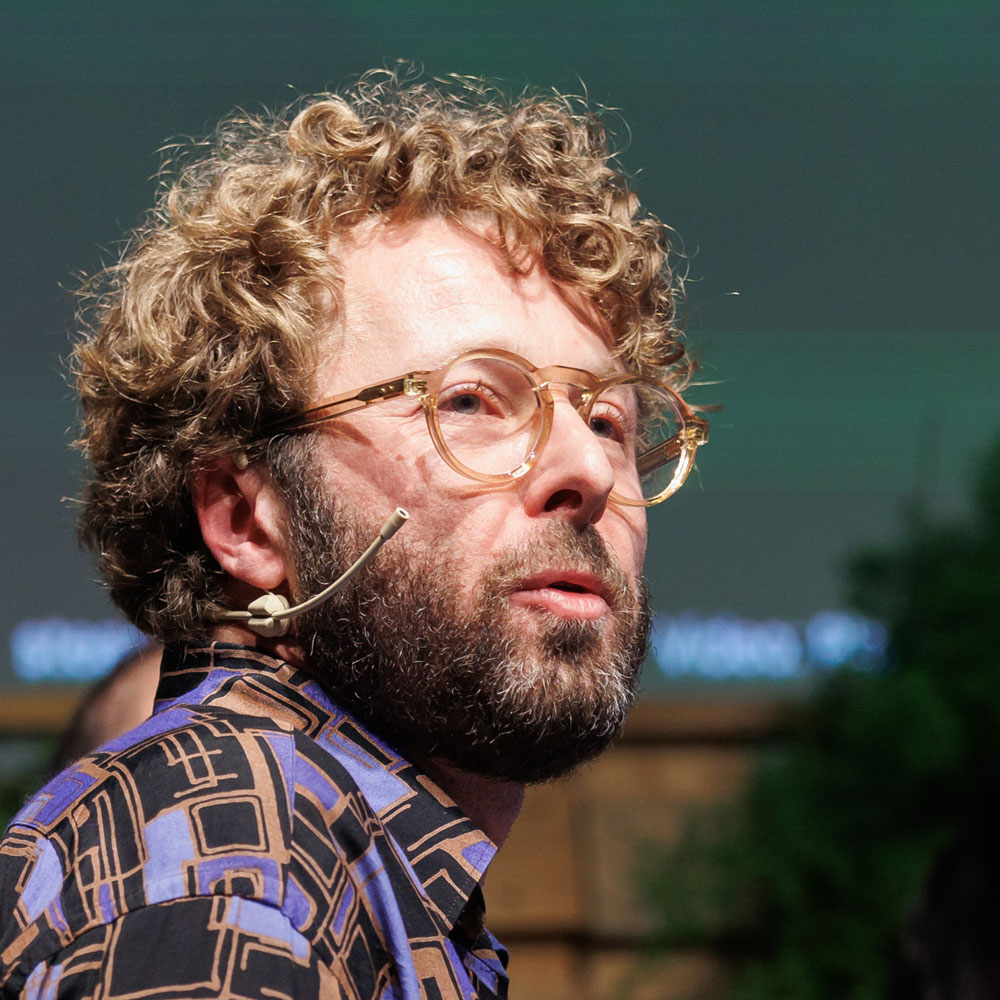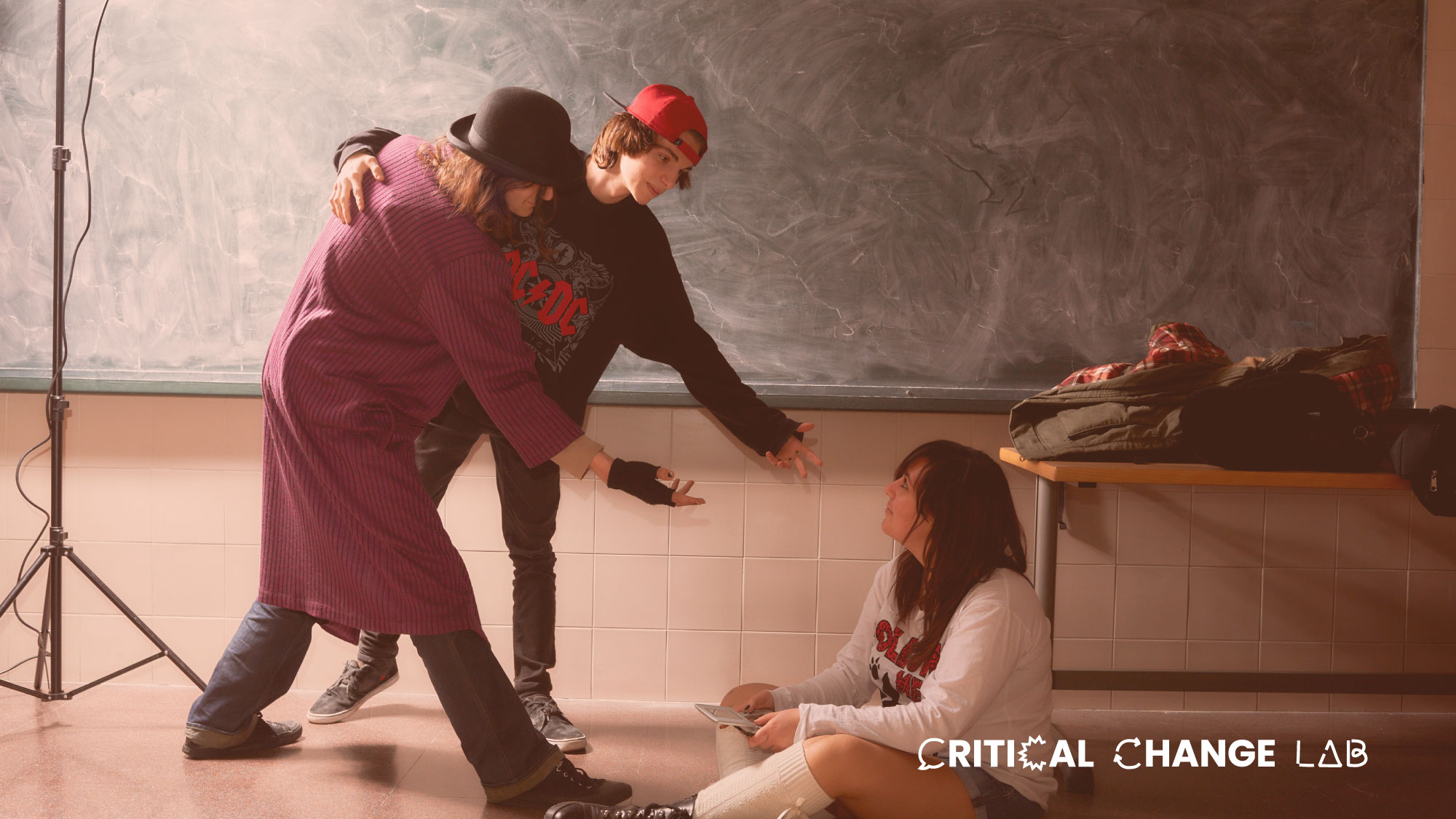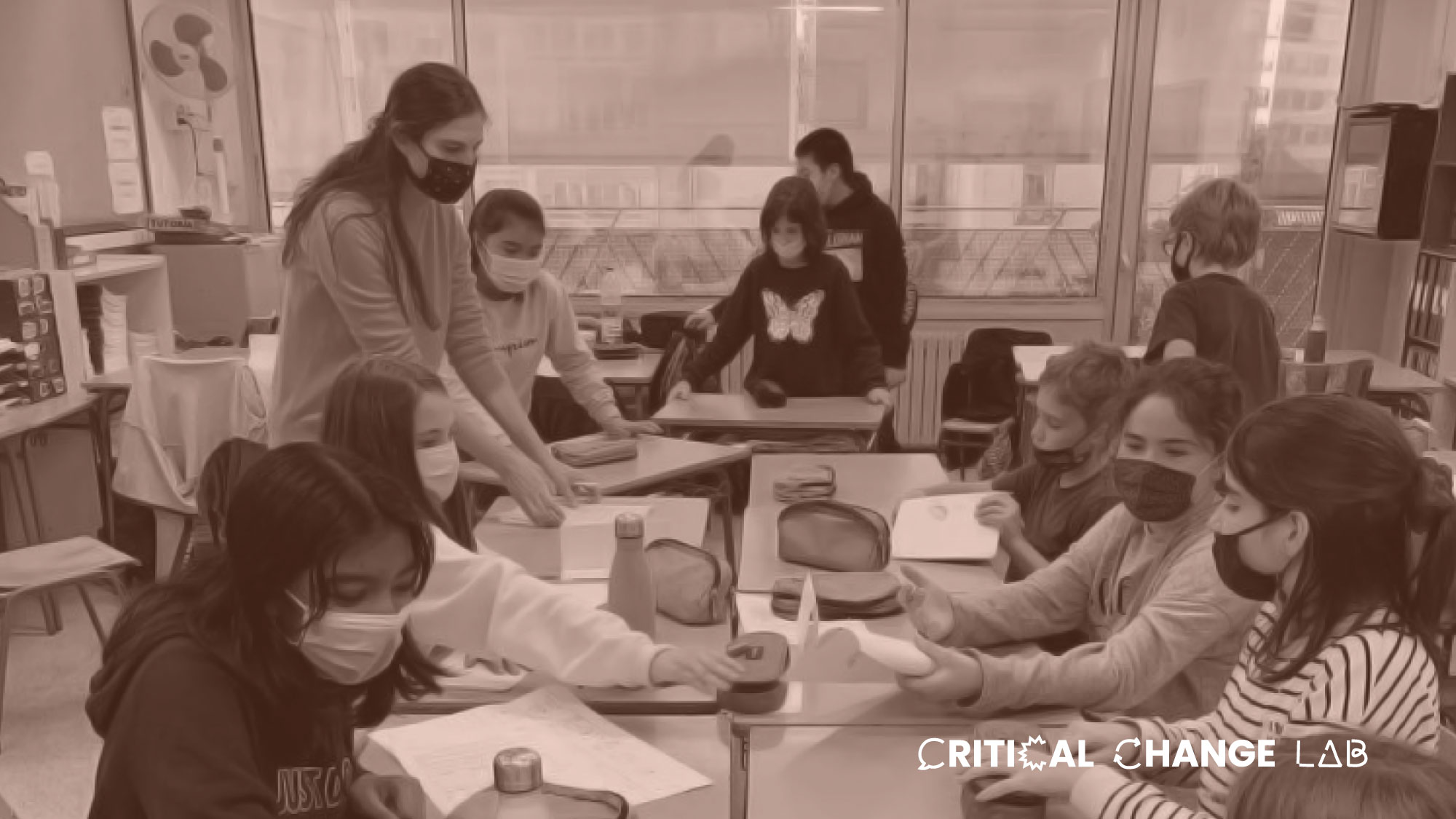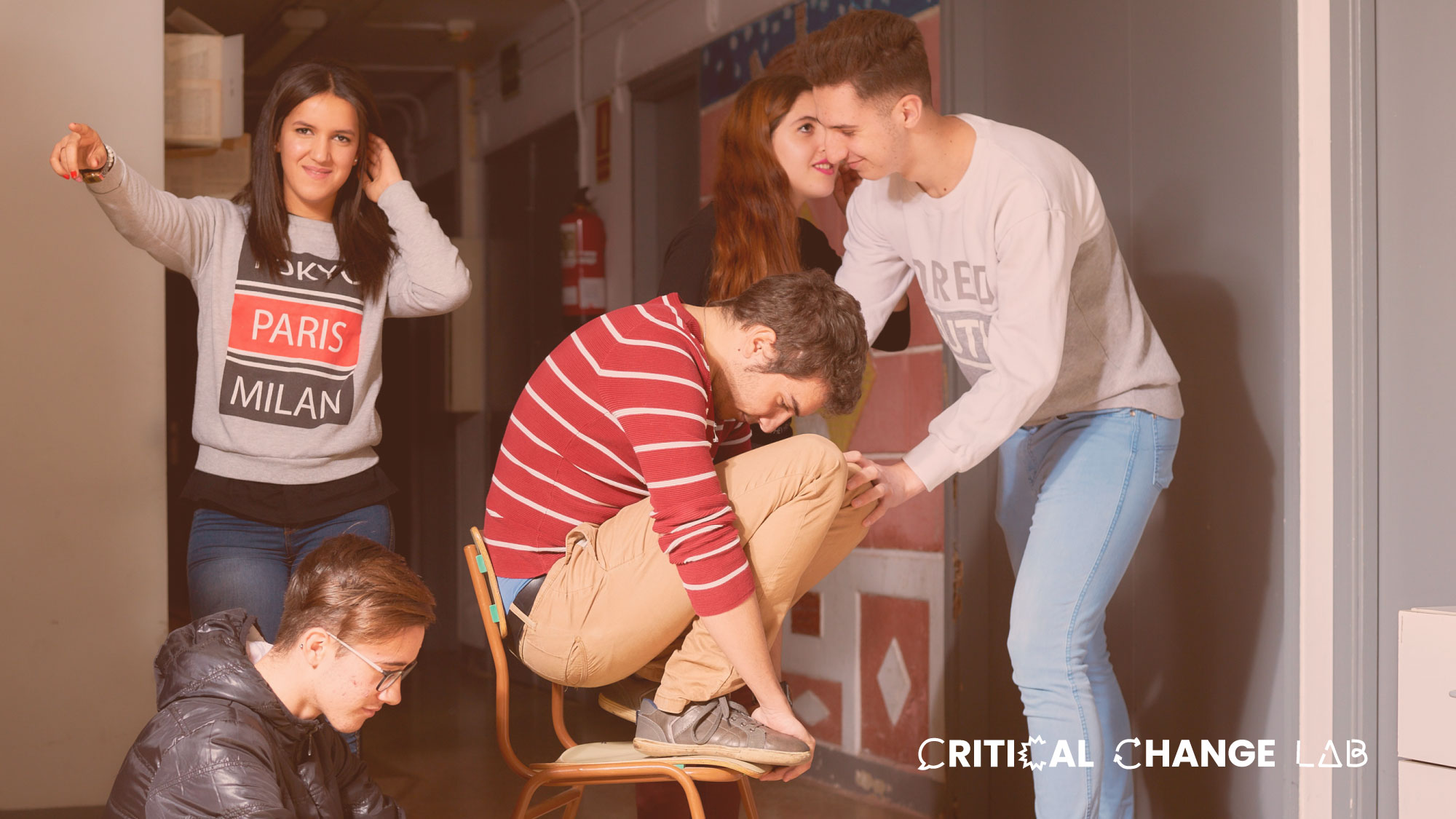Laura Malinverni from the Esbrina research group and the Faculty of Fine Arts at the University of Barcelona speaks to Andrew Newman from Ars Electronica about how arts-based research can bring different perspectives to education.
The research group Esbrina: Subjectivities, Visualities and Contemporary Learning Environments will lead the development and implementation of the Critical ChangeLab Barcelona. Esbrina specializes in educational and arts-based research, with extensive involvement in national and international projects related to contemporary education challenges and the digital era. They have explored topics such as at-risk youth in education, the integration of migrant students, student agency, and collaborative learning. The group consists of members from various disciplines and aims to foster collaboration between the Faculties of Education and Fine Arts at the University of Barcelona. Currently, Esbrina is focused on forming partnerships with public education institutions in Catalonia to assess and enhance their democratic practices.
Could you tell us a little bit about the Esbrina research group that is behind Critical ChangeLab Barcelona?
Esbrina is a research group of the University of Barcelona that brings together people from the Faculty of Fine Arts and the Faculty of Education. Our main goals are related to better understanding the needs of younger people in order to think about education from different perspectives. We also have a big interest in using art practices and design practices to help people think in other ways and do things differently.
How can art and design practices bring these different ways of thinking about education?
We are always focused on trying to use research methods that are child-centered because we’re often doing projects with children and young people. To do this, we use a lot of art-based research methods because we believe that both visual art, performing art, and other kinds of expressive practices can be very suitable for children. It allows them to speak about themselves from a perspective that is not the classical perspective that we know from social science. We also use art practice as a method to help people reflect on their processes, for instance their learning trajectory, as well as a way to communicate.
Art and design practices help people to think in other ways and do things differently
How does Critical ChangeLab relate to the research goals of Esprina?
Critical ChangeLab explores new ways of supporting learning processes, and this aligns perfectly with our research goals. The project’s specific focus on participatory and democratic culture, I think is fundamental for rethinking education and learning, both in formal and non-formal spaces.
Involving young people in thinking about how they can be an agent of change is also an important element that relates to our research scope. We are particularly interested in supporting young people’s voices and enabling them to speak for themselves.
How can art help give agency to young people?
I believe that art practice can have several benefits in terms of enabling young people to speak for themselves. On one hand, it can allow more young people to speak. For instance, in a project where we worked with a lot of migrant children that were newly arrived, the use of visual strategy was particularly helpful to overcome the barrier of language. Art practice can also encourage young people to have more permission to speak. This is because they don’t feel that it’s a duty and that they have to answer in a very formal way, instead they can feel more free to experiment and try to think a little bit differently.
So learning through art can offer a sense of freedom to young people?
Yes. I think it can give more freedom of expression. It can break down barriers, for instance, regarding language. It can also kickstart conversation, and help put on the table issues that might otherwise be difficult to deal with.
Art can help put on the table issues that might otherwise be difficult to deal with
What are some previous projects that will help inform how you approach Critical ChangeLab?
We’ve been involved in a European project called MiCreate which dealt with migrant children in a school. In this project, we used a lot of art-based strategies to better understand the younger children’s perspective of being newly arrived in the school and inform both the teachers and practitioners on art activities and strategies that can be helpful in class to deal with the tension that these children might be experiencing.
What are you most looking forward to in Critical ChangeLab?
Our hope is to engage young people in a project that they really care about, that they feel they are really doing something real, not just an activity for research. They should feel truly engaged and capable of making an impact on society and feel that their voice and experience matter.
Join our newsletter to continue to be updated on what we’re up to at #CriticalChangeLab. We’ll always keep it interesting, and only send you updates for as long as you want us to.

Laura Malinverni is an Assistant Professor in the Department of Visual Arts and Design of the Faculty of Fine Arts at the University of Barcelona and member of the research group ‘Esbrina: Subjectivities, Visualities and Contemporary Learning Environments’. Her research focuses on the relationship between digital technologies, education and creative processes, working both as a researcher as well as an educator and artist. She holds a PhD in Information and Communication Technologies, a Master in Cognitive Sciences and Interactive Media and a Bachelor in Fine Arts. She is one of the founders of the Cosicosa Association, dedicated to critical digital literacy.

Andrew Newman is focused on fostering transdisciplinary cultures as a producer for the European Platform for Digital Humanism at Ars Electronica. He is responsible for projects aimed at bringing artists and scientists together (STUDIOTOPIA), creating STEAM learning experiences (Critical ChangeLab, Open Science Hub, Creative School and STEAM INC), and promoting citizen science (European Union Prize for Citizen Science and IMPETUS). He previously co-founded the Research Institute for Arts and Technology in Vienna where he focused on integrating artistic research methodologies into technology research and development. andrewnewman.net | Linkedin



